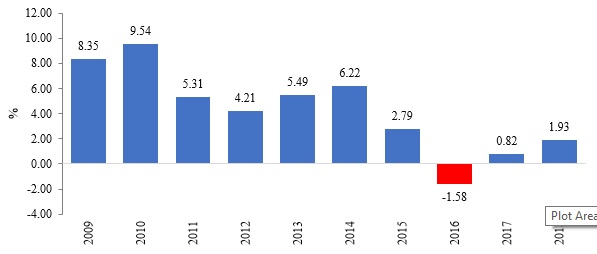Nigeria-China currency swap deal didn’t lift ban on or cover 41 items, CBN insists
As a way of clearing the air between the new Nigeria-China currency swap deal and the fate of the 41 items banned in its 2015 circular on items not valid for foreign exchange, the Central Bank of Nigeria (CBN) on Sunday, made it clear that the ban is still in force irrespective of the N720bn currency deal.
The deal, amongst other things is brokered to soften currency exchange difficulties for Nigerians importing goods from China to escape the hassles of dollar exchange process.
Business Hilights recalls that on June 23, 2015, the CBN placed a ban on accessing foreign exchange in the official foreign exchange market for the importation of some goods and services.
The aim, it said, was to encourage local production of these items, conserve foreign reserves, resuscitate domestic industries and improve employment.
Some of the items banned were rice, cement, poultry, tinned fish, furniture, toothpicks, kitchen utensils, table wares, textiles, clothes, tomato pastes, soap and cosmetics.
Also banned were private jets, roofing sheets, metal boxes, wire rods, steel nails, security and razor nails, ceramic tiles, glassware, cellophane, plastic and rubber products.
CBN’s acting Director, Corporate Communications, Mr. Isaac Okorafor, in an interview noted that the explanation has become necessary to avoid confusion and abuse of protocols.
Besides, he argued that the deal will ensure that the currency deal does not stifle local companies and make Nigeria a dumping ground for Chinese goods.
Okorafor said that the CBN had already taken adequate measures to ensure that doesn’t happen.
“The fear is unfounded and I’ll give you reasons why. The first one is that we are going to focus on exports to China.
“Also, remember that we already export cassava products to China as well as leather, hides and skin to China, among others. So, this deal will open further the export market to China.
“Also, I want Nigerians to know that the items that will come in are not necessarily finished goods, so the issue of Nigeria becoming a dumping ground for China does not arise.
“This is because the 41 items that had initially been banned from the Nigerian Foreign Exchange Market will still not qualify under the deal,” he said.
Okorafor said with the Nigeria-China currency swap deal, the Naira was expected to appreciate against the US dollars as the demand for dollar eases.
While revealing that “China accounts for a quarter or more of imports into Nigeria. The exchange of currencies between the Nigerian Central Bank and the Chinese Central Bank will make it easier for our entrepreneurs to have direct access to foreign exchange in Renminbi (Chinese currency), he averred that “Before now, when importing necessary machinery or merchandise from China, you first exchange Naira to the dollar before changing it again to Renminbi and this puts pressure on the Naira”.
“Now what it means is that a large portion of the demand for dollars in Nigeria has been lifted off the back of the Naira and put directly on the Chinese Renminbi.
“And so it is a positive development as it will enhance the value of the Naira and reduce our dependence on the dollar for imports,” he said.
CBN further disclosed that the two apex banks were still working on the exchange rates between the Naira and Renminbi, noting that “As we speak, the modalities, the operational manual and the guidelines are being developed. But I can assure you that the exchange rate will be such that it will be competitive, fair to all and will not hurt our local producers and importers”.









